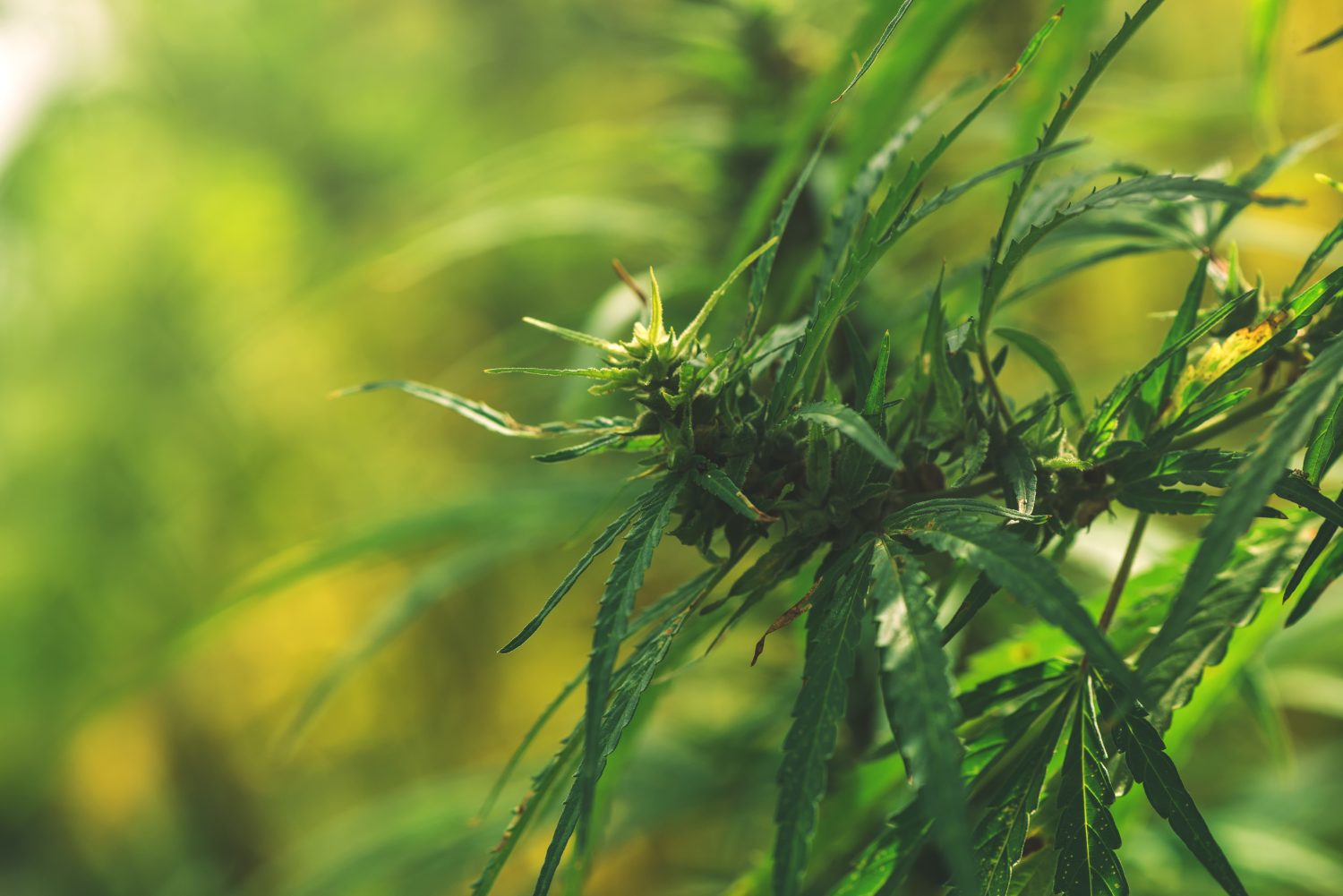
Steve Nicholson
In early January we gathered with growers and thought leaders for our annual Customer Summit. Day one, we talked about how growers can use data to manage their operation and make more confident decisions. Day two was less focused on data and Conservis and more on relevant and timely topics in agriculture. One of those topics was hemp, the plant that has lots of people talking since it was federally declared a commodity crop by the 2018 Farm Bill.
Thinking About Hemp? What You Need to Know was a lively and informative session. Steve Nicholson, an analyst from Rabo AgriFinance and Iowa native with more than thirty years of experience in cash grain markets, hedging, commodity/ingredient procurement, commodity risk management and commodity analysis kicked off the conversation with a market outlook. After that, two hemp farmers weighed in on what they're seeings. Pat Christie, one of our founders, moderated the conversation.
Meet the hemp farmers
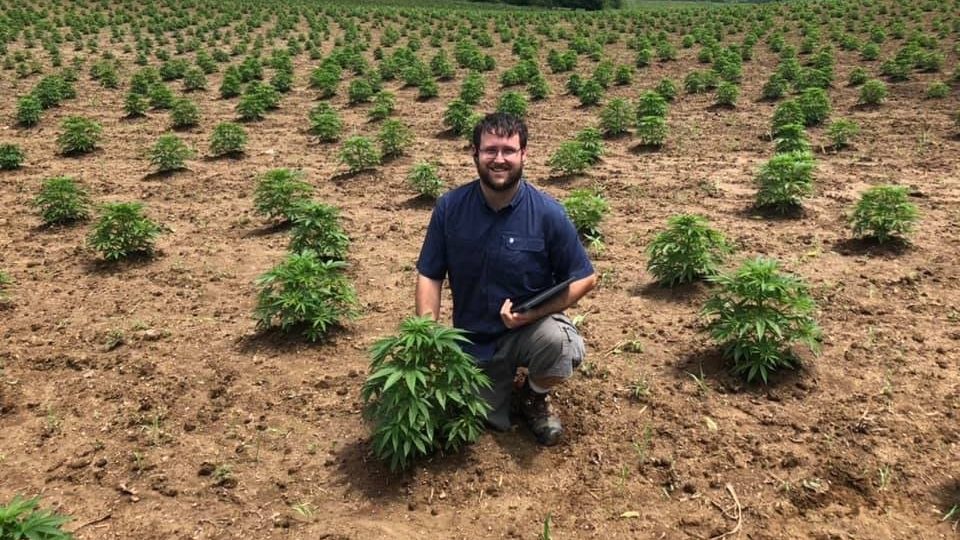
Brandon Lamkin serves as the Technical Operations Manager at Bluegrass Organic Hemp (BOH) in Raywick, Kentucky. Brandon was sought after to provide technical support and information technology to a fledgling industrial hemp operation. As an early pioneer in Kentucky's Hemp Pilot Program, Brandon combines high-level technical expertise derived from the telecommunications industry and a decade of row cropping experience at Peterson Farms. The confluence of these skills have led to significant advancements in record keeping, analysis, and projections for BOH. Brandon hopes to help propel the Bluegrass Organic Hemp team forward in producing the highest-quality, organically produced CBD biomass on the market.
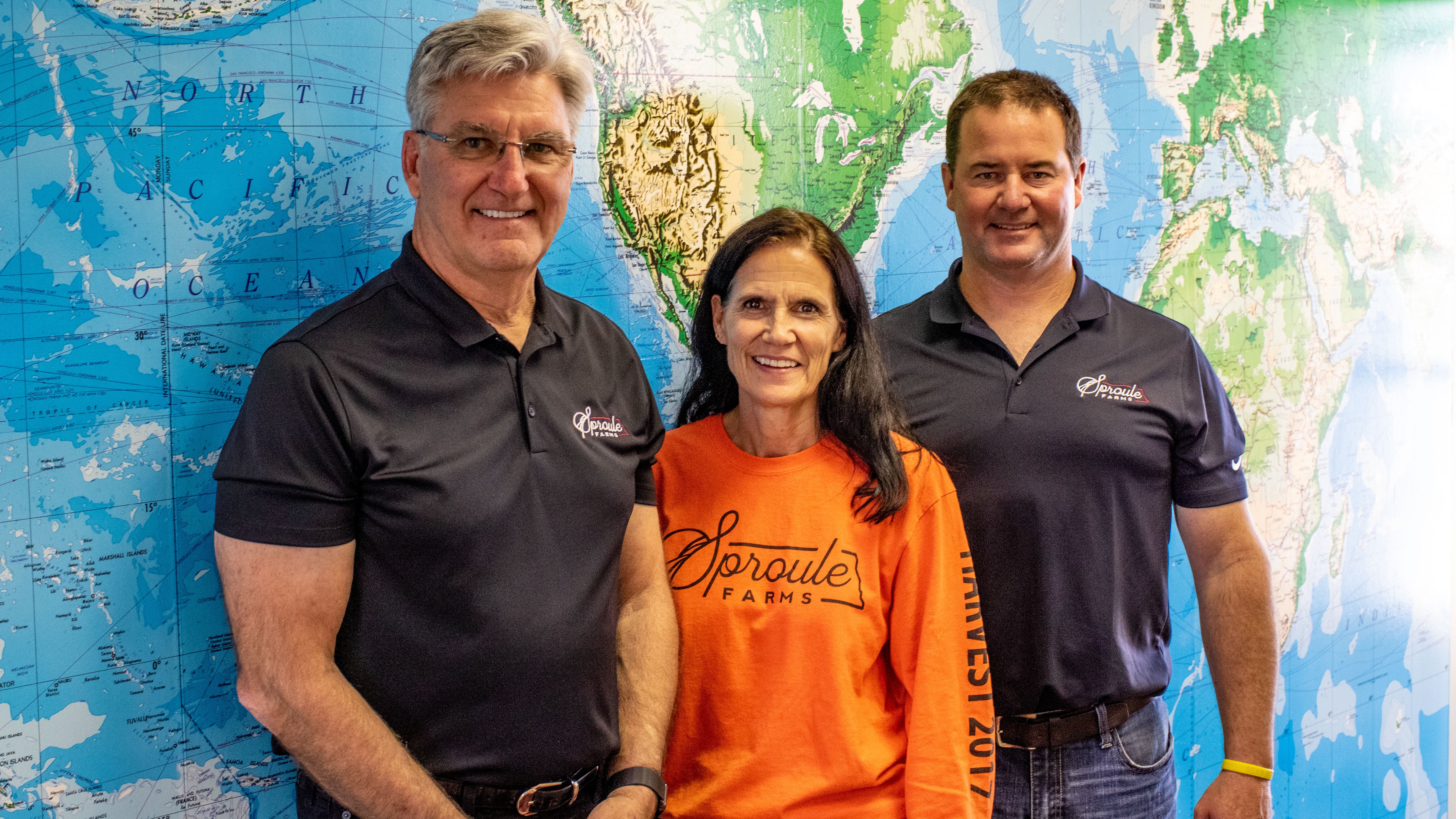
Mike Sproule (right)
Mike Sproule joined Sproule Farms in Grand Forks, North Dakota in 1995, just two years after its inception. Originally a California kid, Mike took to the North Dakota way of life and learned on the farm quickly. He now manages the daily farm operations, crop selection and rotation, agronomy coordination, input analysis, data collection, production costs, and commodity pricing. Mike, along with the Sproule Farms’ team, strives to be on the cutting edge of technological advancements in agriculture. Sproule Farms grows a variety of different crops including corn, soybeans, wheat, edible beans, sugar beets (all in ND), and potatoes (IL). Last year, they also grew 1100 acres of hemp for certified seed. “We’ve always been up to take on a challenge,” Mike said. “We originally thought about doing hemp because our neighbors up in Canada have had hemp for 20 years.”
A business mindset is vital when considering hemp. Both growers use Conservis to help with traceability and financial insight in their operations. We’re grateful for their experienced and insightful perspectives around the topic of hemp.
7 things to consider
Are you a grower curious about hemp and its potential? Based on our conversation last week, here are seven things to keep in mind.
1. End products vary.
Hemp is a plant with many different uses. Much of the conversation is focused on the flowers of the hemp plant, which is where CBD comes from and where the high revenue potential exists. But it isn’t the only option, as was well illustrated with these two growers. Other options are to farm hemp for seed (grain) or fiber.
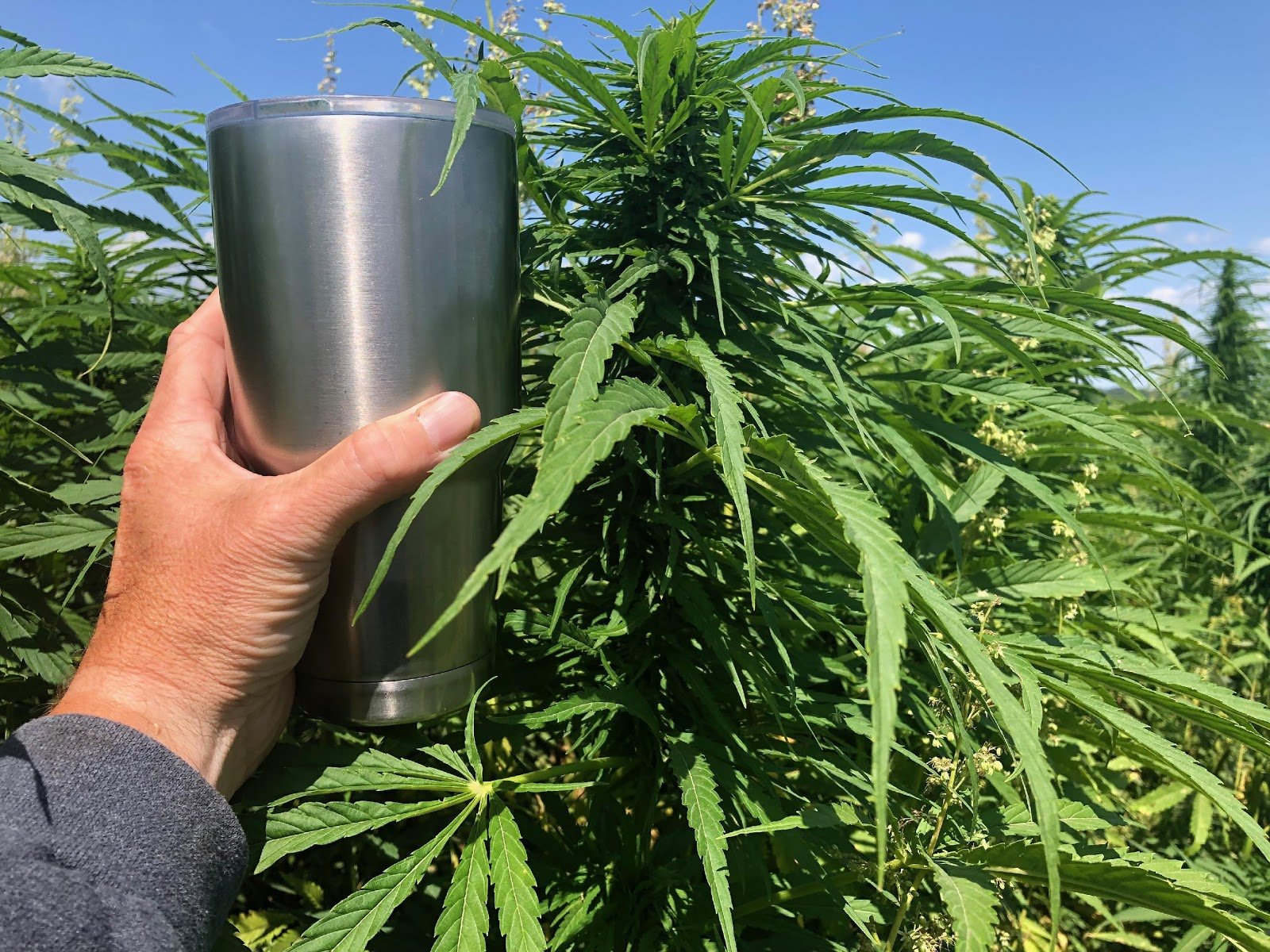
As mentioned above, at this time Brandon grows hemp for CBD, while Mike grows for seed. Your end product will determine how you grow the hemp, and issues can arise with multiple growers raising hemp in one area. Hemp being grown for fiber can interfere with hemp plants being grown for CBD, as plants can pollinate each other. “We have some fiber acres close and we have to watch them from pollinating our fields, because we’re going solely for the flower,” Brandon said. “If you’re within a couple miles, you take a high risk of getting your crop seeded.”
2. Production varies.
With the many uses of hemp comes variation in production methods and costs. Brandon’s hemp operation looked quite different in terms of production from Sproule Farms.
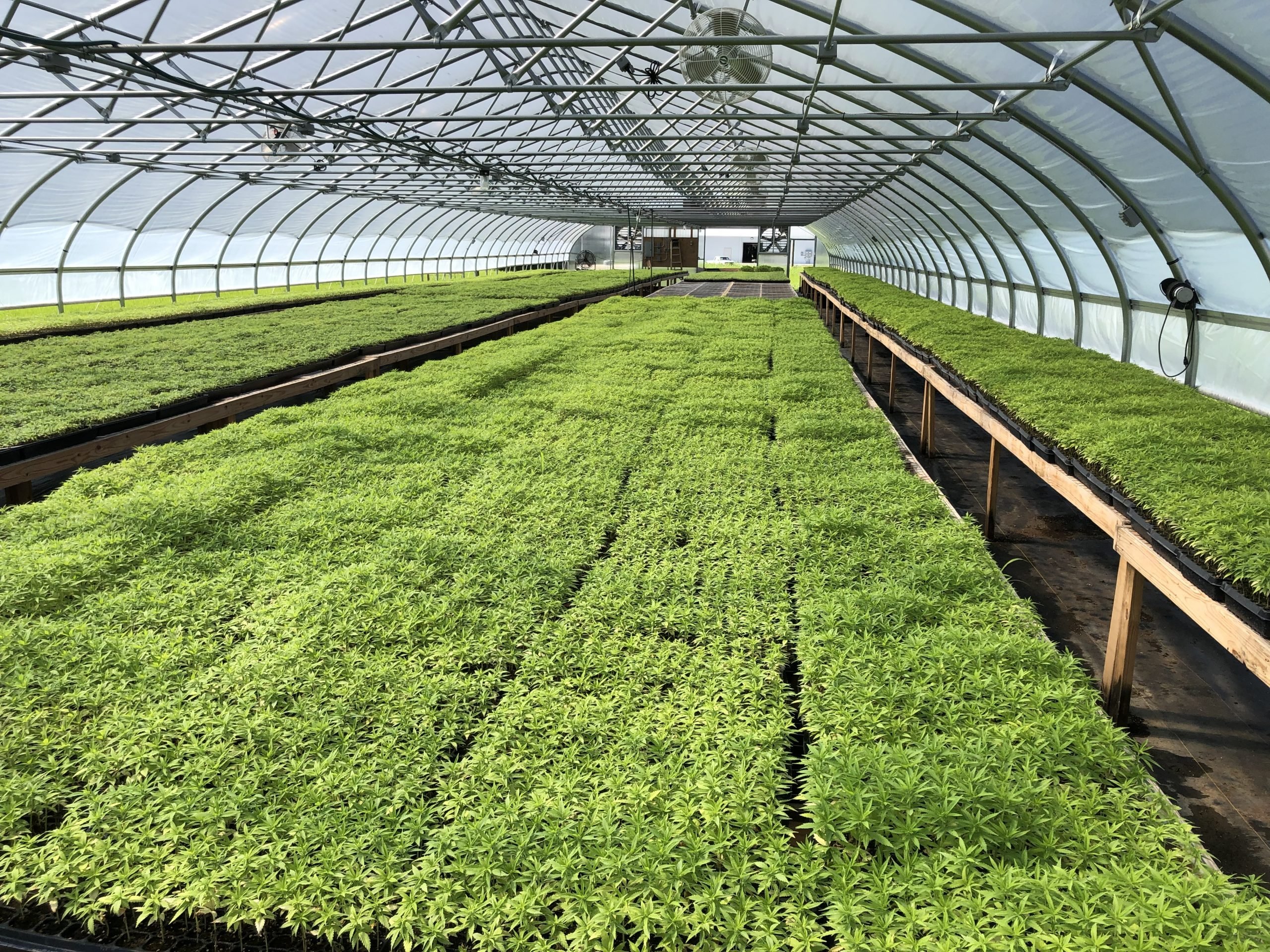
Bluegrass Hemp relies on significant manual labor (they use H-2A) to get the job done. They are an organic operation, but Sproule didn’t have a need for manual labor much at all. This was a shift for them as they’re accustomed to crops that require attention and care, like sugar beets and potatoes. “The challenge with the hemp for us was, unlike Brandon, when you’re raising it for seed, you plant it and you pretty much walk away from it,” he said. “For us, that’s a tough thing to fathom.”
Bluegrass has invested significantly in labor, not in equipment. Brandon was able to utilize and adapt old tobacco infrastructure and equipment in his hemp operation. Sproule Farms did need to purchase some new equipment for cleaning and drying. ”The difference from me and Brandon is, we did put a little bit of money in some infrastructure,” said Mike. But it wasn’t a risky investment. “If we were to decide not to raise it again, everything can be used for any other crop that we have,” he explained. Mike summarized the differences in their hemp operations as labor vs. machine. “When you get into the oil side, you’re putting up buildings to hang stuff. He’s the labor side. We’re all machine side.” (See a video of Sproule Farms' 2019 hemp harvest.)
Though your end product will determine much of your production process, some things in production are the same. You’ll need space and equipment to dry the crop, and it needs to be stored in a cool, dark (and dry) place. There are no approved chemicals, and all hemp will require fertilizer (it takes a lot, too—Mike estimated they spent around $175/acre).
3. Potential market saturation.
Whether on the oil or the grain side, all parties expressed concerns about market saturation. "Our concern right now is that when we look at the acres out there, we've already overproduced this market," said Steve, the Rabo AgriFinance analyst. "We understand that there's hemp in storage, ready to go, and that the CBD market, while it's growing, we have overproduced it already."
The growers shared the sentiment. Brandon noted that his processor production estimations this year were approximately half of what was actually produced, and that he knows several growers in his area who still have their product with no one to sell it to. Mike mentioned several times that he believes we’re already overproducing. “Hands down, I know we’ll overproduce this because there’s just not the processors to handle the product,” Mike said.
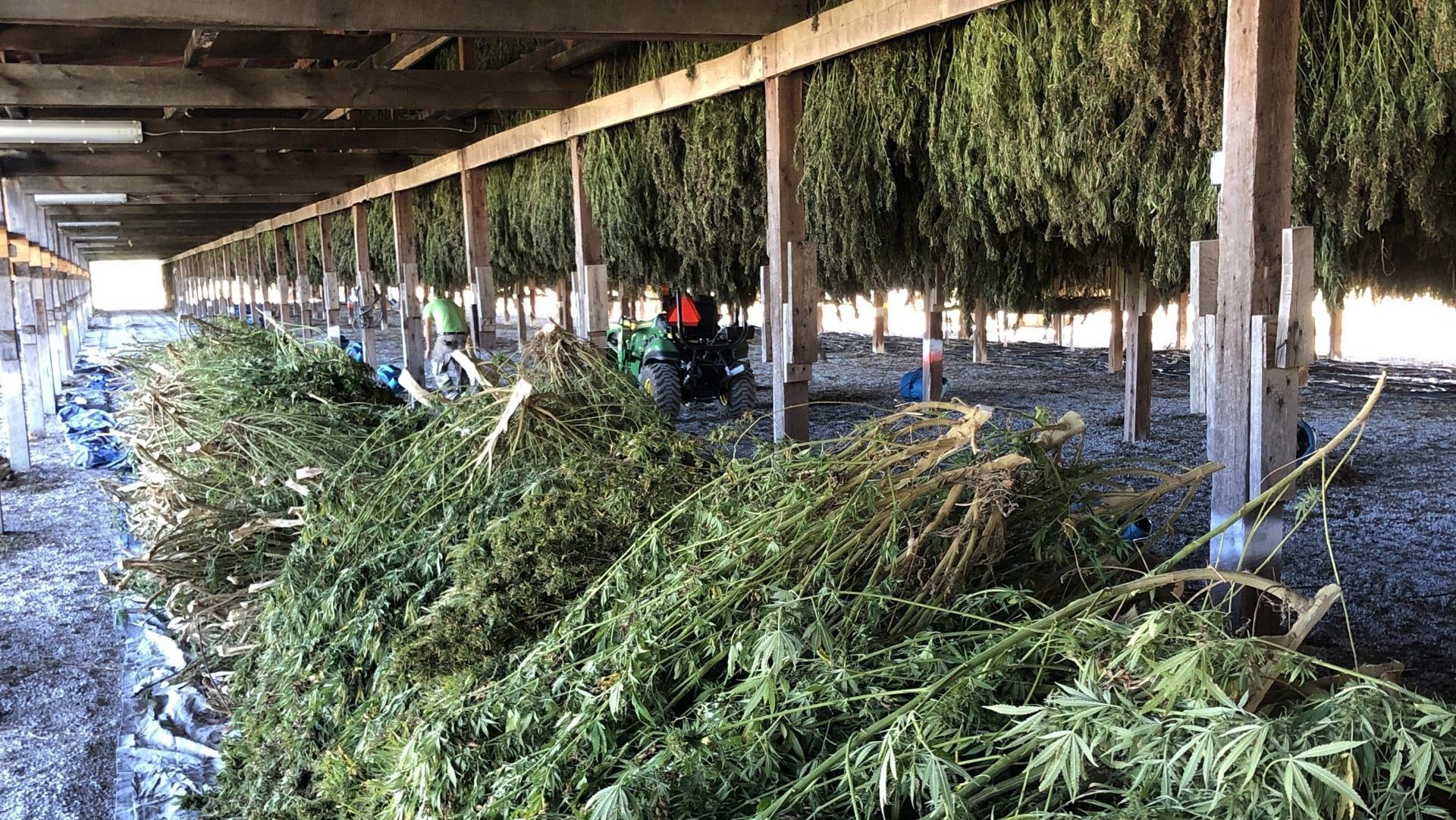
4. Securing a buyer.
In a market that is still very young, all three expressed the importance of having a reliable buyer. Brandon has a contract with a reputable processor out of Colorado, while Mike had a contract to grow certified seed for a company called Legacy Hemp.
When asked what he’d recommend or advise peers to think about right now with regard to hemp, Brandon didn’t hesitate. “First thing is make sure you have a credible buyer. Make sure you have a contract. I’ve heard so many people growing hemp this year that don’t have a buyer. They have their product still and they have a big investment," Brandon said. "So that’s the main thing: find a buyer, and make sure they’re credible.”
Mike emphasized vetting buyers for credibility as well. This comes through involvement in the industry and the building of relationships with key players. “You got to know who’s got a good checkbook, who you’re dealing with,” said Mike. “And that’s tough because anybody can start up with a fancy label or put something on Facebook. So you better do your homework.”
Mike continued, “Obviously people are going to go gung-ho for it, just like in the organic business. Right now I think that’s the craze with this hemp deal. I’m not looking at it that way,” he said. "For one, I like to do things we can learn from. It was a good experience for us. If we could still find contracts, my answer would be, yeah, we’ll raise it again if we have a contract. If we don’t, we’re out.”
5.THC testing—and politics.
Controlling THC levels is a central question in hemp farming, as THC levels are precisely what differentiate hemp from marijuana. The new USDA regulations for testing are more strict, and growers will need to harvest earlier in the future to ensure the levels don’t rise above the acceptable 0.3% level. Sproule was required to send in the seed just before harvest to certify THC levels, though they could have opted to test the levels anytime. Brandon’s plants were tested throughout the year.
Both growers talked about weather and climate as a factor in keeping the THC levels down. “This is a big learning thing for us. My question to Brandon yesterday was, 'how do you get too high of THC levels?' I was told it’s a tough thing to do. Is it over fertilizing or heat,” questioned Mike. Brandon says they’re learning too about how climate and weather affect the crop with regard to THC. “One of the things we’re seeing is, what does well in Kentucky might not do well in Colorado, even on the same strain. The climates are different. Heat’s a factor, moisture’s a factor,” Brandon said. “You have to watch your THC levels.”
Sproule acknowledged there was some anxiety in this area. “When we started getting all the rain, I was worried—is our crop going to be so stressed out that something happens to the plant? A lot of unknowns. But ours was low,” he said. The seed variety plays into this as well. “I think it has something to do with the genetics, too. We picked a variety that we’d seen in some research. One it was available, but two it had very low levels,” he said. “It worked out this year.”
As with anything remotely controversial, politics also plays a part. Brandon explained that midway through the season, the tester who had been doing their THC testing all along, told them he'd received special instructions to grab the biggest and most mature buds. Brandon recalls the inspector saying he'd never received that type of request before, but it came from above. The inspector ended up doing what he believed was ethical and fair. He made the decision to do right by the grower and act in a consistent manner with the other farms he'd inspected. Due to this, Brandon mentioned that there are people behind doors pulling strings and he believes the process was quite interesting to say the least.
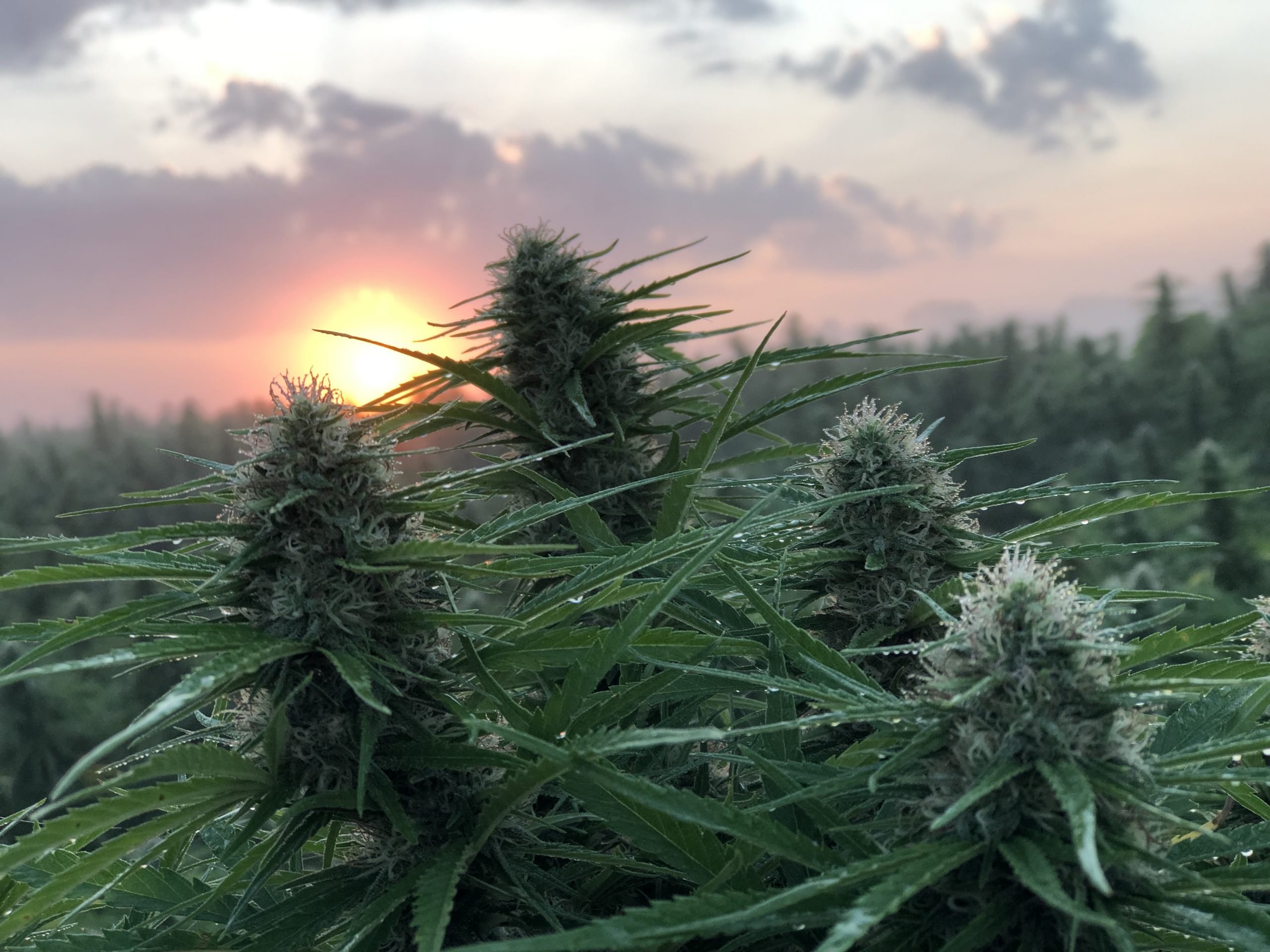
6. Financing and insurance.
Financing is not an option as of right now. Steve and others from Rabo emphasized the limits that many banks still have regarding relationships with hemp growers. Federally regulated banks are not able to do business in this industry, and though this will likely change in the future, right now it’s a reality. Though the 2018 farm bill made a distinction with the cannabis plant between marijuana and hemp, "federal regulators in financial institutions - they have not made that distinction,” said Steve.
Growers are able to access insurance, a relatively new development. The Sproules were able to get hail insurance for some damage they had. “We ended up getting really bad hail that came through and took out about 40% of our crop,” he said. “So we took some damage there.”
7. The big picture.
If growing hemp is going to make sense on a larger scale, everyone agreed that what's needed most is processors. Until the infrastructure is there, it’s challenging to establish the industry. Pat Christie, a founder of Conservis who moderated this panel, expressed confidence in the future of hemp for industrial uses. Though Steve mentioned early on that the market for hemp fiber is virtually non-existent, Pat believes it’s coming.“There are investors in New York who are putting 10, 20, 50, 100 million. We just talked to one, actually a Minnesota investor, who just put 30 million into a farm in California. But not into the farm—into a processing plant,” he said. “So we’re seeing it. Maybe it’s on the edges, but I think it’s a mistake not to pay attention to where it goes." Mike agreed. “Until people have money to start the processing, and outside of states like Colorado, then I think you’ll get a market,” he said.
No matter your current level of interest in hemp, it pays to get your ducks in a row so you're ready for new opportunities. “The more professional you are as an operation, the more likely you’re going to get access to the markets,” said Pat.
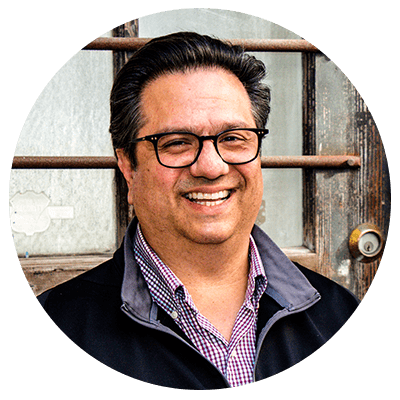
“We’re seeing it. Maybe it’s on the edges, but I think it’s a mistake not to pay attention to where it goes."
Resources
The consensus on the panel was something like this: it’s an interesting industry with a lot going on, meaning there’s both potential and uncertainty. Things are developing and changing rapidly (and also slowly, with regard to the FDA). The answer to so many questions about hemp, at least at this point, is “it depends.”
Complex situations, complex decisions—oh, the life of a farmer. At the end of the day, individuals need to assess their own situation, costs, and tolerance for risk, as well as continue to learn. Some places to start:
- Familiarize yourself with the most recent regulations. Here’s a summary of the USDA regulations released in October 2019.
- Read industry reports. The Hemp Business Journal was recommended in the panel as a reliable source of information on the hemp industry.
- Connect with what's happening on the ground. You can follow Bluegrass Organic Hemp and Sproule Farms on Facebook (and follow Conservis while you're there, too).
- Attend in-person events to learn and connect. One of the best ways to learn and get up-to-date information is taking the time to attend events like shows and conferences.
Growers who attended our Customer Summit were given copies of two in-depth reports on the outlook of hemp: one focused on economics published by the North American RaboResearch Food and Agribusiness, and a more comprehensive one developed by the Agricultural Utilization Research Institute.
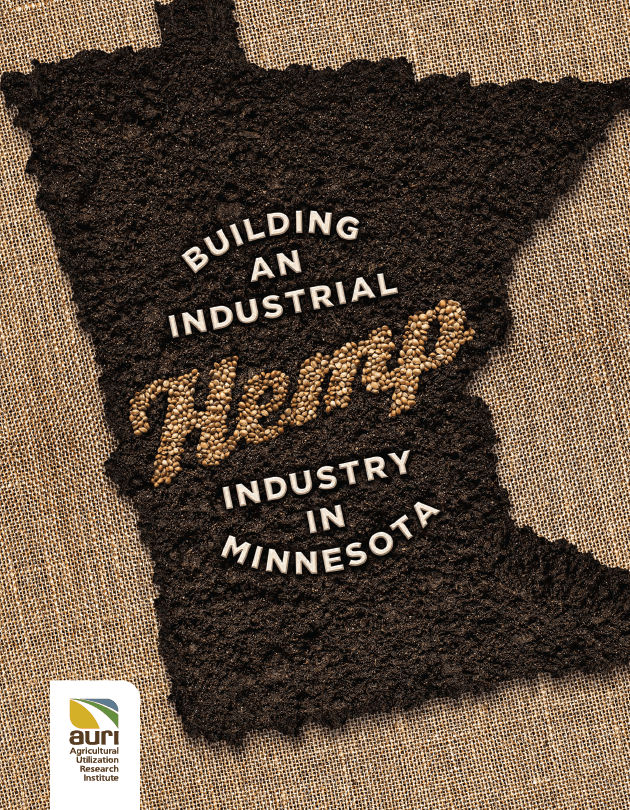
Conservis is the leading independent farm management software system. We’re proud to serve growers of all types of crops who want to improve traceability and use data to improve their operations. Contact us to see how we might be able to support your farm.

